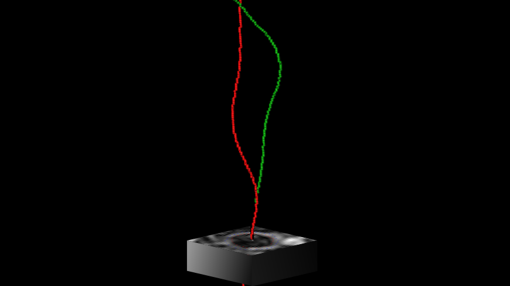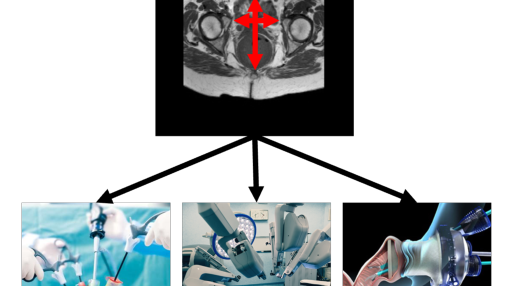I obtained my PhD in 2021 at Paris Brain Institute with a thesis entitled Reproducible and interpretable deep learning for the diagnosis, prognosis and subtyping of Alzheimer’s disease from neuroimaging data. Another main output of my PhD is the contributions to two Python libraries:
My research interests are in deep learning for medical image analysis, in particular the study of their validity and robustness and their application to neurological problems.
I fully support my peers working on climate science, which is why I joined University Rebellion and Scientist Rebellion.
Organisaties
Overige bijdragen
Journal papers:
- Wen*, J., Thibeau-Sutre*, E., Díaz-Melo, M., Samper-González, J., Routier,A., Bottani, S., Dormont, D., Durrleman, S., Burgos, N. and Colliot, O.,“Convolutional Neural Networks for Classification of Alzheimer’s Disease: Overview and Reproducible Evaluation”, Medical Image Analysis, 63, 101694 (2020) doi:10.1016/j.media.2020.101694 – hal-02562504 (*: joint first authorship)
- Couvy-Duchesne*, B., Faouzi*, J., Martin*, B., Thibeau-Sutre*, E., Wild*, A., Ansart, M., Durrleman, S., Dormont, D., Burgos, N. and Colliot, O., “Ensemble Learning of Convolutional Neural Network, Support Vector Machine, and Best Linear Unbiased Predictor for Brain Age Prediction: ARAMIS Contribution to the Predictive Analytics Competition 2019 Challenge”, Frontiers in Psychiatry, 11 (2020) doi:10.3389/fpsyt.2020.593336 – hal-03136463 (*: joint first authorship)
- Burgos*, N., Bottani*, S., Faouzi*, J., Thibeau-Sutre*, E. and Colliot, O., “Deep learning for brain disorders: from data processing to disease treatment”, Briefings in Bioinformatics, 22(2), 1560–1576 (2021) doi:10.1093/bib/bbaa310 – hal-03070554 (*: joint first authorship)
- Chadebec, C., Thibeau-Sutre,E., Burgos, N. and Allassonnière, S., “Data augmentation on neuroimaging data with variational autoencoders”, IEEE Transactions on Pattern Analysis and Machine Intelligence (2022) 10.1109/TPAMI.2022.3185773 – arXiv: 2105.00026
Journal papers linked to software contributions:
- Routier, A., Burgos, N., Guillon, J., Samper-González, J., Wen, J. and Bottani, S.,Marcoux, A., Bacci, M., Fontanella, S., Jacquemont, T., Wild, A., Gori, P., Guyot,A., Lu, P., Díaz, M., Thibeau-Sutre, E., Moreau, T., Teichmann, M., Habert, M.-O., Durrleman, S. and Colliot, O., “Clinica: an open source software platform forreproducible clinical neuroscience studies”, Frontiers in Neuroinformatics, 15 (2021) doi:10.3389/fninf.2021.689675 – hal-02308126
- Thibeau-Sutre*, E., Díaz*, M., Hassanaly, R., Routier, A., Didier, D., Colliot, O.,Burgos, N., “ClinicaDL: an open-source deep learning software for reproducibleneuroimaging processing”, Computer Methods and Programs in Biomedicine (20220 10.1016/j.cmpb.2022.106818 – hal-03351976 (*: joint first authorship)
Peer-reviewed conference proceedings:
- Thibeau-Sutre, E., Colliot, O., Dormont, D. and Burgos, N., “Visualization approach to assess the robustness of neural networks for medical image classification”, SPIE Medical Imaging, 11313, 113131J, 2020 doi:10.1117/12.2548952 – hal-02370532
- Thibeau-Sutre, E., Couvy-Duchesne, B., Dormont, D., Colliot, O. and Burgos, N., “MRI Field Strength Predicts Alzheimer’s Disease: a Case Example of Bias in the ADNI Data Set”, ISBI - International Symposium on Biomedical Imaging, 2022 doi:10.1109/ISBI52829.2022.9761504 – hal-03542213
- Thibeau-Sutre, E., Wolterink, J., Dormont, D., Colliot, O. and Burgos, N., “How can data augmentation improve attribution maps for disease subtype explainability?”, SPIE Medical Imaging, 2023 hal-0396673
Onderzoeksprofielen
Vakken collegejaar 2022/2023
Vakken in het huidig collegejaar worden toegevoegd op het moment dat zij definitief zijn in het Osiris systeem. Daarom kan het zijn dat de lijst nog niet compleet is voor het gehele collegejaar.
Lopende projecten

Automatic carotid segmentation
Collaboration with McGill University

BrAInSHIFT
een innovatieve AI-tool om Subdurale Hematoom behandeling te selecteren
Een chronisch subduraal hematoom (cDSH) is een bloeding tussen de schedel en de hersenen. Zo’n bloeding kan op de hersenen drukken en kan leiden tot hoofdpijn, uitvalsverschijnselen of een verminderd geheugen. Behandelopties zijn ofwel een operatie, ofwel afwachten. De neurochirurg kiest een behandeling onder andere op basis van de midline shift zoals gemeten op CT. Helaas kwantificeert deze maat niet welke druk een hematoom op afzonderlijke delen van de hersenen uitoefent. In dit project ontwikkelen we met behulp van kunstmatige intelligentie een nieuwe CT parameter waarmee we wel de vervorming op elk punt in het brein kunnen bepalen.

AI-SURGE
Towards personalized AI-based treatment selection in colorectal cancer surgery
The choice of the procedure to be performed in colorectal cancer surgery is crucial, as a wrong choice may lead to poor postoperative outcomes. As it was shown that surgical outcomes may depend on pelvic anatomy, we propose the project AI-surge: a decision support tool for surgeons based on artificial intelligence computing pelvimetry parameters. The booster project will allow to implement the first part of this tool, which is the automatic determination of the pelvis shape from MR images.
Nieuws op utwente.nl
Events with University Rebellion: